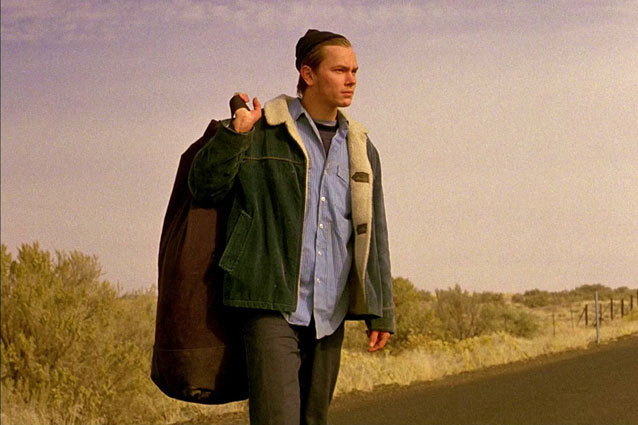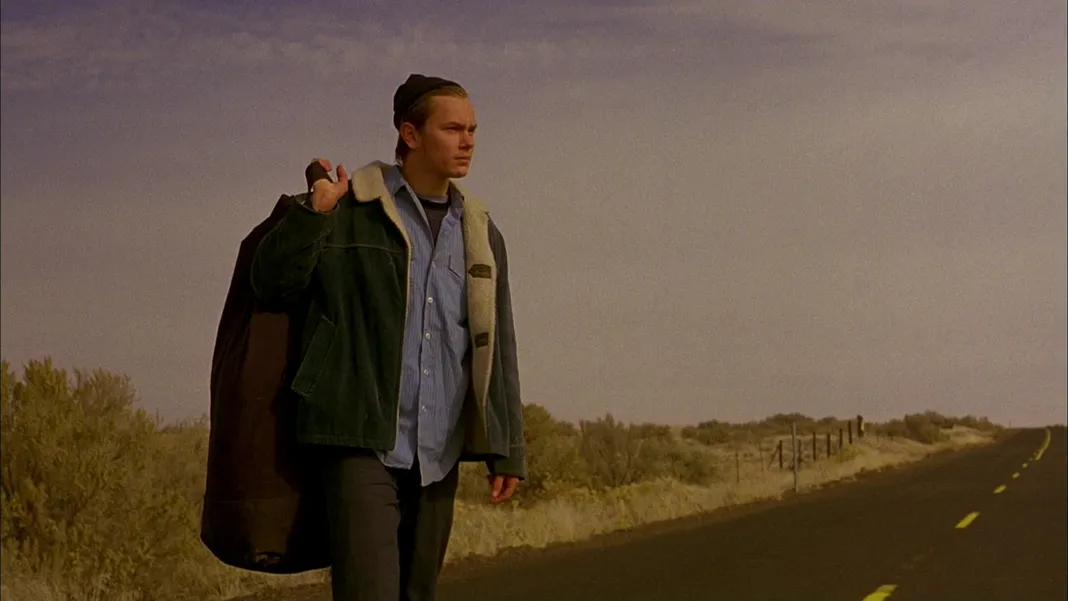 Fine Line Features
Fine Line Features
It’s hard to believe, but this Halloween marked the 20th anniversary of River Phoenix’s death. The actor had yet to reach his peak when he died of a drug overdose outside The Viper Room in Hollywood at only twenty-three years old. Phoenix was often referred to as the new James Dean, and as hyperbolic as that may sound, it was actually very true – Phoenix displayed a truthful and raw intensity in all his roles that projected a maturity beyond his years, which is impressive considering that he had grown up having never seeing a film in his life. His short career inspired a legion of actors and his death allowed actors such as Leonardo DiCaprio and Johnny Depp to have the careers they had. The troubled actor was also heavily involved with environmental organizations: he had famously bought a section of the Amazon rainforest after receiving his first big check, just so that portion of the forest couldn’t be cut down. Sensitive and intelligent, Phoenix was more than just a pretty face – he was a one-of-a-kind performer that brought authenticity to every role he played. (But damn, that face sure was pretty.)
Explorers
Ok, so Explorers isn’t exactly award-winning material, but it’s Phoenix’s first feature film and is adorably weird. The film is a dorky sci-fi fantasy that has a chubby-faced Phoenix (who looks like the stereotypical image you get when you hear the words “President of the AV Club”) starring alongside a young Ethan Hawke (bonus point of greatness: Phoenix’s character is named Wolfgang). The boys somehow come up with a magic machine out of a Tilt-A-Whirl cart and cruise around different galaxies, so the film is obviously awesome. Though it didn’t fare well in box office sales, the film went on to acquire a cult following.
Stand By Me
Truly one of the best coming-of-age films, Stand By Me was only Phoenix’s second feature film. The movie was well-acted by all the leads, but Phoenix showed a maturity beyond his fourteen years. Stand By Me was also when he began his trademark trend of being able to steal the entire movie he was in with just one scene. For the famous scene by the fire in which Phoenix’s character breaks down after sharing his disappointment of a teacher betraying him, director Rob Reiner reportedly told the actor to think of the saddest moment in his life – once the scene was over, Phoenix was still crying uncontrollably. The depth that Phoenix brought to the role was effortlessly translated on the screen and immediately turned him into a star, full on with both critical acclaim and Tiger Beat covers.
Running On Empty
A storyline that had similarities with the actor’s own life, Running On Empty had Phoenix starring alongside Judd Hirsch, Christine Lahti, and Phoenix’s then-girlfriend, Martha Plimpton. The film finds Phoenix living as the son of two fugitives on the run from the FBI for an anti-war protest bombing of a napalm lab. The family had to constantly move around and change their identities, harking back to Phoenix’s own nomadic childhood during his family’s days in the controversial Children of God cult. The scene of Phoenix’s confession about his identity to Plimpton’s character in the garden was hands-down the best scene in the film, and his performance ended up getting him an Oscar nomination at the ripe young age of seventeen.
Dogfight
Dogfight is such an overlooked and underrated film, not only in Phoenix’s filmography, but just in general. The Nancy Savoka–directed flick is set in Vietnam War-era San Francisco and has a deceptively simple storyline: Phoenix plays an eighteen year-old Marine who takes Lili Taylor out on a date the night before he’s shipped off to Vietnam – what Taylor’s character doesn’t know is that Phoenix is taking her to a “dogfight,” a pretty evil game the other Marines play in which the soldiers compete for cash for who can bring the ugliest date. Taylor finds out and leaves, Phoenix follows, and voila – sappy rom-com, right? Except Dogfight somehow manages to be a wonderfully profound movie that avoids stereotypes and predictability, instead illuminating the nature of human relationships. Both Taylor and Phoenix’s performances are brilliant, and their adorably awkward bedroom scenes are so realistic, you’ll be cringing in your seat along with them. Plus, the film gives Musical Bingo some cred by making it spark some serious foreplay, so that’s totally awesome, too.
The Thing Called Love
Though it’s definitely not the best film in his catalogue, The Thing Called Love is a great movie just for Phoenix’s crazy chemistry with Samantha Mathis, who he was wooing during filming (spoiler: he succeeded). It also has a charming Dylan McDermott and a young Sandra Bullock, just before she broke through with Speed. The film revolves around country music, but even if country isn’t your thing, the songs are still enjoyable and, making it even better, the actors actually sing their own songs. Phoenix initially wanted to be a musician and had a band called Aleka’s Attic alongside his sister Rain, so getting to see/hear Phoenix’s musical chops is a treat. The film is also Phoenix’s last completed film, and despite the fact that Phoenix was obviously strung out during filming, the charm and complexity he brought out in his character makes the film worth it.
My Own Private Idaho
Considered to be Phoenix’s magnum opus, My Own Private Idaho has Gus Van Sant directing in all his weird, ethereal glory. The film is essentially an entanglement of two stories, one of Phoenix on a mission to find his long-lost mother, and the other revolving around Keanu Reeves in a loose adaptation of Shakespeare’s Henry IV and Henry V. Phoenix plays a narcoleptic street hustler who’s in love with Reeves, his wealthy best friend who is really just playing gay-for-pay to rebel against his father. The film is notable for its Shakespearian dialogues and dreamy sequences symbolizing Phoenix’s character’s narcolepsy, but it’s Phoenix who makes the film the treasure that it is, serving as the heart and soul of the entire movie. The famous campfire scene where Phoenix professes his love to an uncomfortable Reeves was mostly rewritten by Phoenix himself, and the result is one of the most heartbreaking and well-acted scenes in film. My Own Private Idaho is when Phoenix allegedly began using drugs, and the character he played is eerily similar to perceptions of Phoenix – sadly conflicted, passionate and generous, jaded and tired, yet idealistic and innocent.


